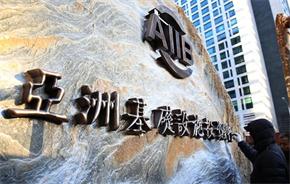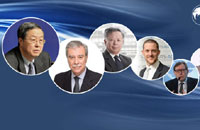Brzezinski and his insightful wisdom will be missed
By Chen Weihua (China Daily) Updated: 2017-06-03 08:32The passing of Zbigniew Brzezinski last week came as a shock because a little more than a month ago he was still making public appearances and commenting on the Korean Peninsula issue. In the past week, many of my Chinese journalist friends who had interviewed him or attended his lectures recalled on WeChat Moments their fond memories of the great strategist.
For many of us, Brzezinski was a man of wisdom with a great understanding of the world and China. As the US national security advisor in the Jimmy Carter administration, Brzezinski played a key role in the normalization of diplomatic relations between the United States and the People's Republic of China in 1979.
He enjoyed a friendly relationship with Chinese leader Deng Xiaoping. I heard Brzezinski mention that friendship several times, including at a film show last November at the Meridian International Center in Washington where the documentary, Mr Deng Goes to Washington, chronicling Deng's historic visit to the US in January 1979, was screened.
While most people may remember the image of Deng donning a 10-gallon cowboy hat at a rodeo show in Texas, Brzezinski had fond memories of Deng having dinner prepared by his wife Emilie and waited on by his three children at his home.
To my generation, Brzezinski was one of several wise US politicians known to Chinese. Others included former US secretary of state Henry Kissinger and former US national security advisor Brent Scowcroft. I first saw Brzezinski in 2004 when he delivered a speech at the Oksenberg conference room at Stanford University.
After Brzezinski retired as the US national security advisor in 1981, Deng told him that he was welcome to travel anywhere in China. Brzezinski expressed his intention to travel with his children along the historic Long March route that the Red Army undertook in 1934-36. Deng agreed.
However, Chinese Foreign Ministry officials did some homework and found out that it would be very difficult to make the trip because much of the Long March route was still inaccessible to vehicles. Brzezinski said at the seminar that they managed to travel only a short section of the Long March route.
When I posted this anecdote on my WeChat Moments on Saturday, friends praised Brzezinski for his charisma. I attended quite a few lectures of Brzezinski in the past four years in Washington. While I did not agree with everything he said, I have always admired his wisdom and insight.
Brzezinski was not shy of criticizing people in his own Democratic Party. For example, he said Susan Rice, US ambassador to the United Nations from 2009 to 2013, lacked the necessary diplomatic skills when she used "disgusting and shameful" to describe the veto by China and Russia of a UN Security Council resolution on Syria. Of course, the veto came after the US and its NATO allies had abused a UN Security Council resolution in 2011 to pursue regime change in Libya.
Brzezinski was also blunt about US surveillance of China's coast and believed it to be an unnecessary provocation. "We do something to the Chinese every week that we wouldn't like them to do us," Brzezinski told a seminar in October 2015. China has long protested surveillance by US military planes and ships, a Cold War legacy, as a provocative action. While fully aware of the differences between China and the US, Brzezinski always believed it was important for the two countries to cooperate in order to resolve regional and global issues.
I tried to attend every lecture of Brzezinski in the past years. And it is hard to believe that when I return to Washington on June 1 after my vacation in China, Brzezinski will no longer be there.
The author is deputy editor of China Daily USA.
chenweihua@chinadailyusa.com

Last weekend, I was hanging out downtown with a friend and my sister. We were walking through a public spare when all of a sudden a heated argument between a student and a middle-aged woman arrested our attention.











